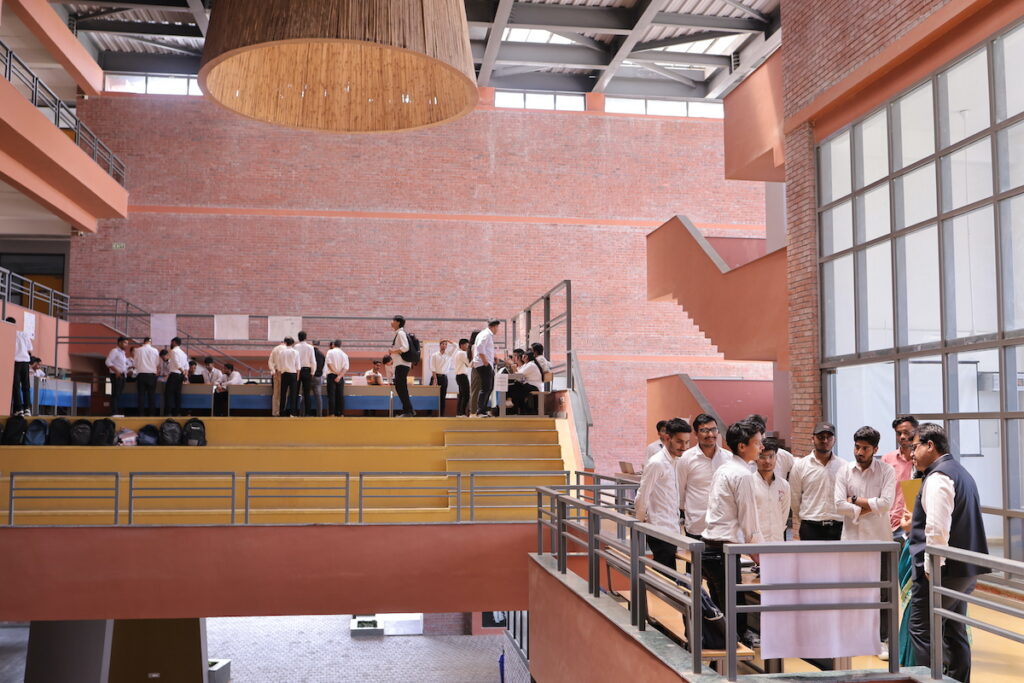D Pharma Duration
The D Pharma Duration typically spans 2 years, divided into four semesters. This course is designed to equip students with foundational knowledge and practical skills in the field of pharmacy.
Students are introduced to various subjects, including pharmaceutical chemistry, pharmacology, pharmaceutics, and hospital pharmacy.
In addition to classroom learning, the program includes practical training in laboratories and hospitals. With a D Pharma Duration of two years, graduates are qualified to work as pharmacists or pursue further studies in pharmacy, such as a B. Pharma, to enhance their career prospects in the healthcare industry.
Some of the most opted courses in India and St. Andrews college or different Engineering college or Management colleges are as follows:-
- Btech
- Btech CSE
- Btech ETCE
- MTech
- BCA
- BBA
- MBA
- MCA
- DPharma – St. Andrews College of Pharmacy
- BPharma – St. Andrews College of Pharmacy
- BArch – St. Andrews College of Architecture
Diploma in Pharmacy Course
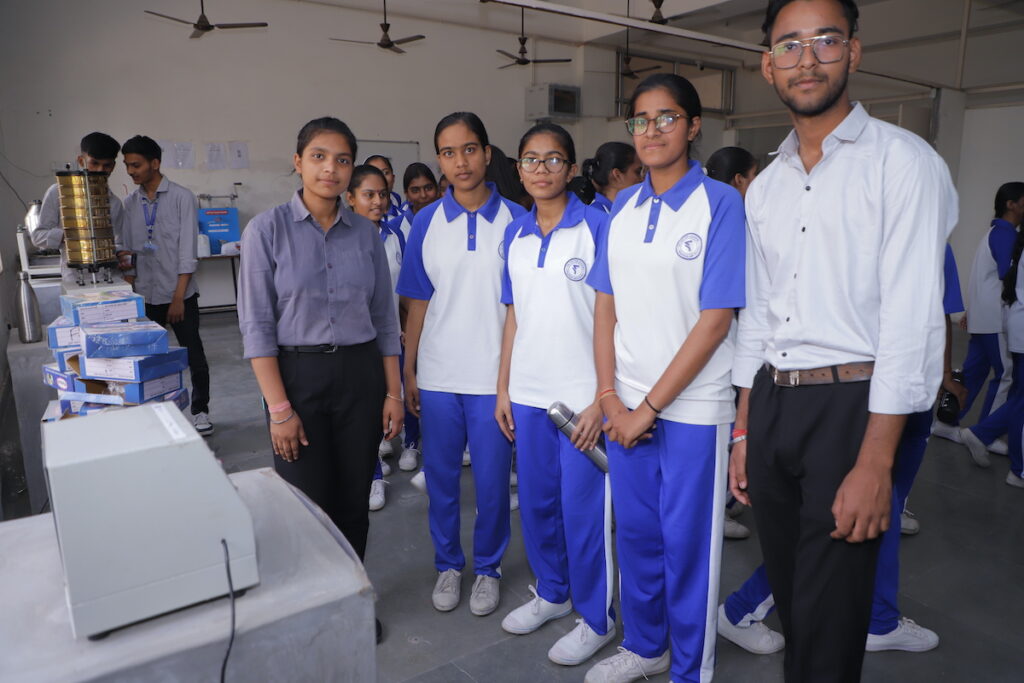
The Diploma in Pharmacy (D. Pharma) is a two-year program, with a D Pharma Duration of two years, that provides foundational knowledge and skills in pharmacy sciences. Designed for aspiring pharmacy professionals, the course covers subjects like pharmacology, pharmaceutics, pharmacognosy, and hospital pharmacy.
It includes both theoretical learning and practical training, preparing students to work as pharmacists, in hospitals, or in drugstores.
After completing the two-year program with a D Pharma Duration, graduates are eligible to register as pharmacists. They can pursue higher education, such as a Bachelor of Pharmacy (B. Pharma), or begin working in the drug industry.
Key Highlights of D Pharma
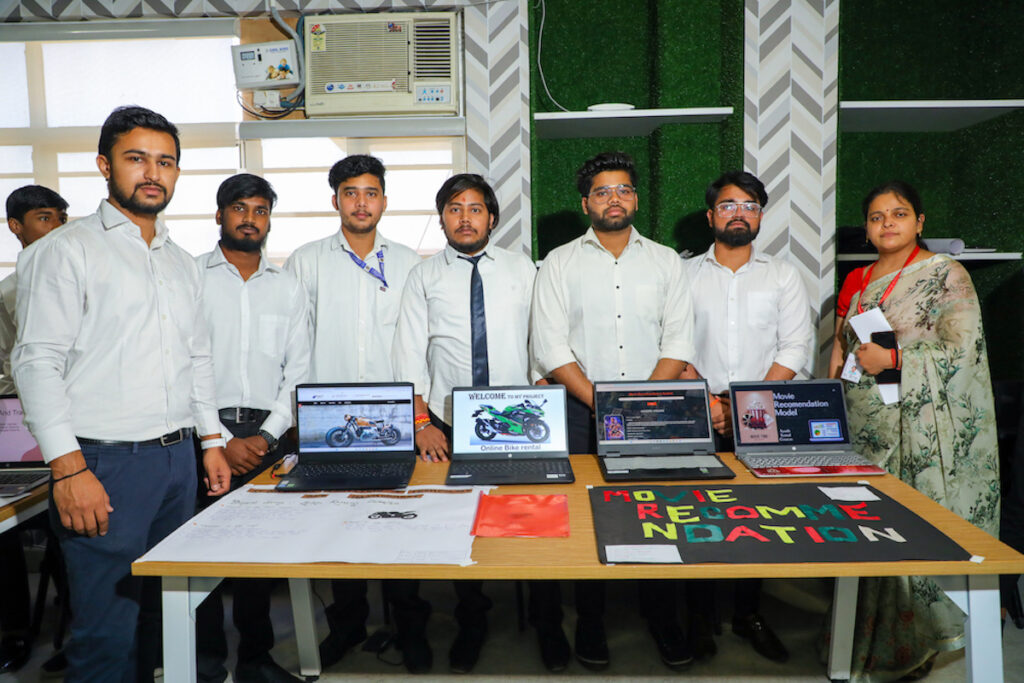
Here is the overview of key highlights for D Pharma Course:
Comprehensive Curriculum
The D. Pharma program covers essential areas of pharmacy, including pharmacology, pharmaceutical chemistry, and pharmacognosy.
Practical Training
Emphasizes hands-on experience through laboratory work, internships, and practical training in real-world pharmacy settings.
Regulatory Knowledge
Provides understanding of pharmaceutical regulations and standards, ensuring compliance with legal and ethical guidelines.
Patient Interaction
Prepares students to effectively communicate with patients, providing medication counseling and education.
Industry Relevance
Aligns with current industry practices and standards, making graduates well-prepared for various roles in the pharmaceutical field.
Career Opportunities
Opens doors to diverse career paths including community pharmacy, hospital pharmacy, pharmaceutical sales, and quality control.
Skill Development
Focuses on developing critical skills such as drug dispensing, patient management, and pharmacological knowledge.
Accreditation
Many programs are accredited by relevant educational and pharmaceutical bodies, ensuring a recognized and respected qualification.
Interdisciplinary Approach
Integrates knowledge from various disciplines, including chemistry, biology, and medicine, to provide a well-rounded education.
Ethical Practices
Emphasizes the importance of ethical practices and professional conduct in the pharmaceutical industry.
D Pharma Curriculum

The D. Pharma (Diploma in Pharmacy) curriculum is typically structured into two years, each divided into theory and practical subjects. Here’s an overview:
First Year
Pharmaceutics-I (Theory and Practical)
- Introduction to pharmacy, dosage forms, pharmaceutical calculations, and dispensing.
Pharmaceutical Chemistry-I (Theory and Practical)
- Basic chemistry, including inorganic chemistry, medicinal chemistry, and pharmaceuticals.
Pharmacognosy (Theory and Practical)
- Study of natural sources of drugs, including plants, animals, and minerals.
Biochemistry & Clinical Pathology (Theory and Practical)
- Understanding biochemical processes, enzymes, and diagnostic clinical pathology.
Human Anatomy & Physiology (Theory and Practical)
- Basics of human body structure, functions, and various systems like circulatory and respiratory.
Health Education & Community Pharmacy (Theory)
- Public health, hygiene, and the pharmacist’s role in community health.
Second Year
Pharmaceutics-II (Theory and Practical)
- Advanced formulation, compounding, and pharmaceutical technology.
Pharmaceutical Chemistry-II (Theory and Practical)
- Organic chemistry, analytical techniques, and quality control.
Pharmacology & Toxicology (Theory and Practical)
- Drug action, therapeutic uses, pharmacy practice, side effects, and toxicology.
Pharmaceutical Jurisprudence (Theory)
- Laws and regulations governing pharmacy practice and drug control.
Drug Store & Business Management (Theory)
- Basics of business, inventory management, and retail pharmacy operations.
Hospital & Clinical Pharmacy (Theory and Practical)
- Role of pharmacists in hospitals, drug interactions, and patient care.
Practical Training
Students are required to undergo practical training in hospital pharmacies or retail drug stores for a specified duration, which is crucial for hands-on experience. With a D Pharma Duration of two years, the curriculum equips students with the knowledge and skills needed to excel as competent pharmacy professionals.
D Pharmacy Admission Process

The admission process for D.Pharm (Diploma in Pharmacy), with a D Pharma Duration of two years, typically involves the following steps:
Eligibility Criteria
- Educational Qualification: Candidates must have completed their 10+2 (or equivalent) examination with Physics, Chemistry, and Biology/Mathematics as mandatory subjects.
- Minimum Marks: Most colleges require a minimum aggregate score, usually around 45-50% in the qualifying examination.
Entrance Exams (if applicable)
- Some institutions and states conduct entrance exams for D. Pharmacy admissions. Common exams include:
- State-Level Entrance Exams: For example, Gujarat Common Entrance Test (GUJCET), Maharashtra Common Entrance Test (MHT CET), etc.
- Institution-Specific Exams: Some private colleges might have their own entrance exams.
Application Process
- Online/Offline Application: Candidates need to fill out an application form available on the college’s official website or through offline mode.
- Documents Required: Typically, documents like mark sheets, ID proof, and photographs are needed.
Merit List/Entrance Exam Result
- Based on the entrance exam scores or merit in the qualifying examination, colleges release a merit list of selected candidates.
Counseling and Seat Allotment
- Shortlisted candidates may be required to participate in a counseling process where they can choose their preferred college and course based on their rank.
Document Verification
- Once a seat is allotted, candidates need to verify their documents at the designated centers or the college itself.
Admission Confirmation
- After document verification, candidates must pay the required admission fee to confirm their seat.
Commencement of Classes
- The academic session usually begins shortly after the admission process is completed.
D Pharma Eligibility Criteria

The eligibility criteria for pursuing a Diploma in Pharmacy (D. Pharma) typically include the following:
Educational Qualification
Candidates must have completed their 10+2 (or equivalent) from a recognized board.
The qualifying exam should include subjects like Physics, Chemistry, and Biology/Mathematics.
Minimum Marks
Generally, a minimum aggregate score of 50% is required in the 10+2 examination. However, this may vary depending on the institution.
Some institutions may have a relaxation in the minimum marks for reserved category candidates (e.g., SC/ST/OBC).
Age Limit
Candidates should be at least 17 years old at the time of admission. There is usually no upper age limit.
Entrance Exam
Some institutions or states may require candidates to qualify for an entrance exam for admission to the D. Pharma course.
D Pharma Fees Structure

Here is the general overview of fee structure for a Diploma in Pharmacy:
Government Colleges
Annual Fees: Typically range from ₹5,000 to ₹25,000 per year.
Total Cost: The total cost for the two-year program can be between ₹10,000 to ₹50,000.
Private Colleges
Annual Fees: Usually range from ₹50,000 to ₹1,50,000 per year.
Total Cost: The total cost for the two-year program can be between ₹1,00,000 to ₹3,00,000.
Additional Costs
Examination Fees: May be charged separately and can range from ₹1,000 to ₹5,000 per year.
Books and Materials: Costs for books, lab equipment, and other materials can range from ₹5,000 to ₹15,000 per year.
Scholarships and Financial Aid
Many institutions offer scholarships or financial aid, which can significantly reduce the overall cost for eligible students.
Top Colleges for D Pharma Course in India

Here are some of the top colleges in India offering the D. Pharma (Diploma in Pharmacy) course:
Jamia Hamdard, New Delhi
Overview: A prestigious university known for its excellence in pharmacy education.
Key Highlights: State-of-the-art facilities, strong industry connections, and experienced faculty.
St. Andrews College of Pharmacy (SACP),Gurgaon
Overview: A well-regarded institution offering a wide range of pharmacy programs.
Key Highlights: Comprehensive curriculum, global partnerships, and advanced research facilities.
Institute of Chemical Technology (ICT), Mumbai
Overview: A premier institution with a strong focus on chemical engineering and pharmacy.
Key Highlights: Excellent research opportunities, modern labs, and strong placement support.
Delhi Institute of Pharmaceutical Sciences and Research (DIPSAR), New Delhi
Overview: A leading pharmacy institute affiliated with Delhi University.
Key Highlights: Highly experienced faculty, modern infrastructure, and strong academic focus.
University Institute of Pharmaceutical Sciences, Panjab University, Chandigarh
Overview: One of the oldest pharmacy institutes in India with a rich legacy.
Key Highlights: Strong academic environment, extensive research opportunities, and notable alumni.
Madras Medical College, Chennai
Overview: A top pharmacy college offering high-quality pharmacy education.
Key Highlights: Excellent clinical exposure, experienced faculty, and strong industry ties.
Poona College of Pharmacy, Pune
Overview: A leading pharmacy college affiliated with Bharati Vidyapeeth University.
Key Highlights: Modern facilities, diverse programs, and strong placement records.
JSS College of Pharmacy, Mysore
Overview: Part of JSS Academy of Higher Education & Research, known for its pharmacy programs.
Key Highlights: Well-equipped labs, experienced faculty, and good industry connections.
Bombay College of Pharmacy, Mumbai
Overview: A reputed institution offering high-quality pharmacy education.
Key Highlights: Strong research focus, excellent infrastructure, and experienced faculty.
Goa College of Pharmacy, Panaji
Overview: A government institution with a strong reputation in pharmacy education.
Key Highlights: Affordable fees, experienced faculty, and a focus on practical training.
Top Government D Pharma Colleges
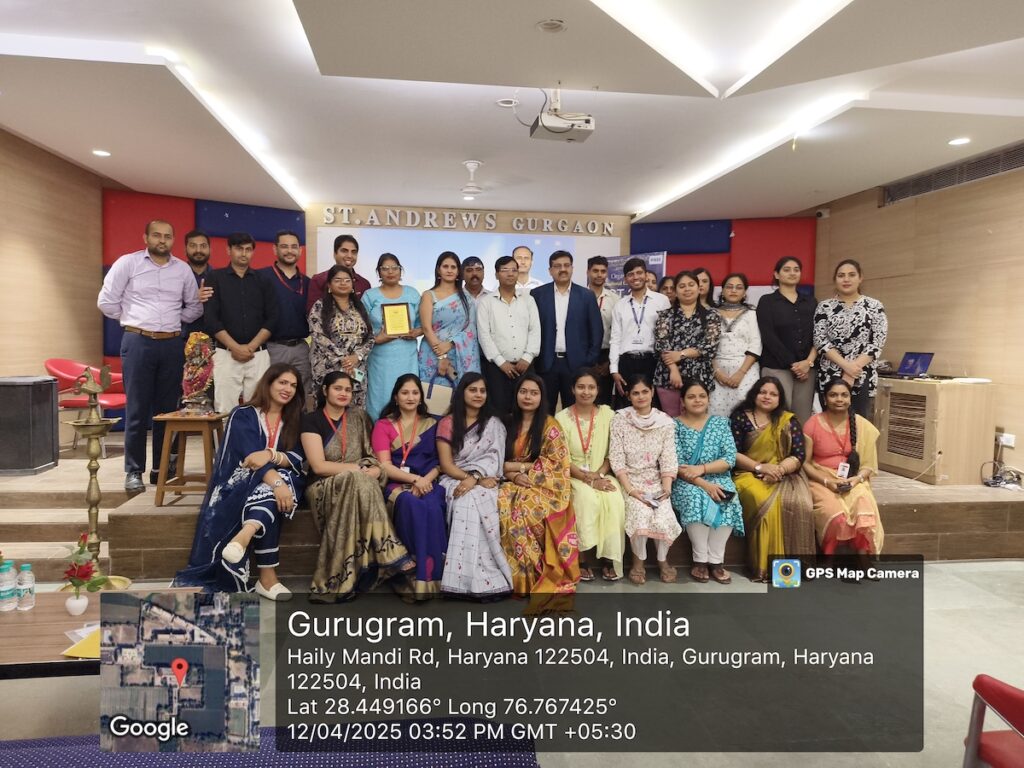
Here are some of the top government colleges offering D. Pharma in India:
St. Andrews College of Pharmacy (SACP),Gurgaon
Overview: Though SACP is primarily a private institution, it offers quality education in pharmacy and is recognized for its modern infrastructure and experienced faculty.
Key Highlights: Well-equipped labs, industry-oriented curriculum, and strong placement support.
Jamia Hamdard, New Delhi
Overview: A prestigious institution known for its excellence in pharmacy education, particularly at the diploma level.
Key Highlights: Strong industry connections, state-of-the-art facilities, and a focus on research and innovation.
Delhi Institute of Pharmaceutical Sciences and Research (DIPSAR), New Delhi
Overview: A leading pharmacy institute under Delhi University, offering top-notch education and research opportunities.
Key Highlights: Extensive research facilities, highly experienced faculty, and strong academic focus.
Madras Medical College, Chennai
Overview: One of the oldest and most respected medical colleges in India, offering a well-established D. Pharma program.
Key Highlights: Excellent clinical exposure, strong industry links, and a robust academic environment.
Goa College of Pharmacy, Panaji
Overview: A government institution with a long-standing reputation for providing high-quality pharmacy education.
Key Highlights: Affordable fees, experienced faculty, and a strong focus on practical training.
Government College of Pharmacy, Bangalore
Overview: A well-regarded government institution offering comprehensive pharmacy education with an emphasis on practical skills.
Key Highlights: Modern infrastructure, experienced faculty, and good placement opportunities.
Institute of Chemical Technology (ICT), Mumbai
Overview: A premier government institute known for its excellence in chemical engineering and pharmacy sciences.
Key Highlights: Advanced research facilities, a strong focus on innovation, and a rich academic tradition.
University Institute of Pharmaceutical Sciences, Panjab University, Chandigarh
Overview: One of the oldest pharmacy institutes in India, offering a robust D. Pharma program with a rich legacy of excellence.
Key Highlights: Strong academic environment, extensive research opportunities, and notable alumni.
Government Pharmacy Institute, Patna
Overview: A government-run institute known for its quality education in pharmacy, particularly at the diploma level.
Key Highlights: Affordable education, experienced faculty, and good industry connections.
Government Polytechnic College, Mumbai
Overview: A well-established government polytechnic offering a D. Pharma course with a focus on practical skills and industry relevance.
Key Highlights: Strong academic support, well-equipped labs, and good placement records.
Top Private Colleges for DPharma
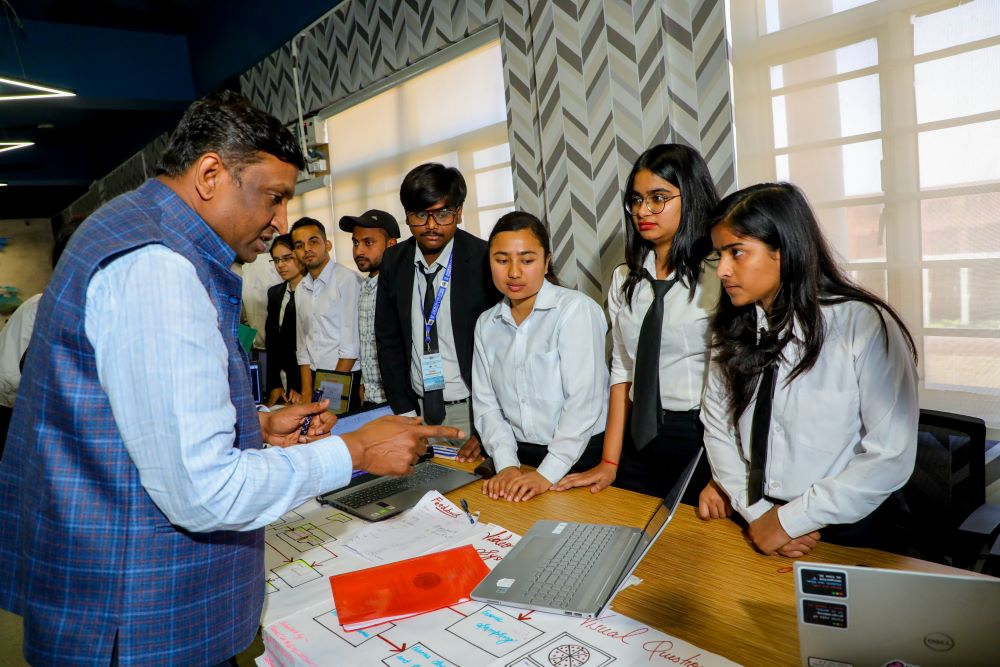
Here are some of the top private colleges in India offering D. Pharma programs, including their locations, highlights, and the D Pharma Duration of two years:
St. Andrews College of Pharmacy (SACP), Gurgaon
- Location: Gurgaon, Haryana
- Overview: SACP offers a well-rounded D. Pharma program with modern facilities and a strong focus on practical training.
- Key Highlights: Experienced faculty, state-of-the-art laboratories, and strong industry connections.
Jamia Hamdard, New Delhi
- Location: New Delhi, Delhi
- Overview: Jamia Hamdard’s D. Pharma program is well-regarded for its emphasis on both traditional and modern pharmacy sciences.
- Key Highlights: Heritage of excellence in pharmacy education, well-equipped labs, and experienced faculty.
Birla Institute of Technology (BIT), Mesra
- Location: Ranchi, Jharkhand
- Overview: BIT Mesra’s D. Pharma program is recognized for its research-oriented approach and quality education.
- Key Highlights: Focus on innovation, well-established research centers, and strong industry interface.
Chitkara University, Rajpura
- Location: Rajpura, Punjab
- Overview: Known for its practical approach to pharmaceutical education, Chitkara University offers a dynamic D. Pharma program.
- Key Highlights: Hands-on training, industry collaborations, and strong placement record.
Acharya & BM Reddy College of Pharmacy, Bangalore
- Location: Bangalore, Karnataka
- Overview: This college is known for its quality education in pharmacy with an emphasis on practical skills.
- Key Highlights: Experienced faculty, well-equipped laboratories, and active industry engagement.
JSS College of Pharmacy, Ooty
- Location: Ooty, Tamil Nadu
- Overview: A pioneer in pharmaceutical education, JSS College offers an in-depth D. Pharma program.
- Key Highlights: Scenic campus, strong research orientation, and active industry partnerships.
Banasthali Vidyapith, Jaipur
- Location: Jaipur, Rajasthan
- Overview: Banasthali Vidyapith provides a unique blend of traditional and modern pharmacy education, exclusively for women.
- Key Highlights: Women-centric education, strong academic framework, and vibrant campus life.
Higher Studies After D Pharma
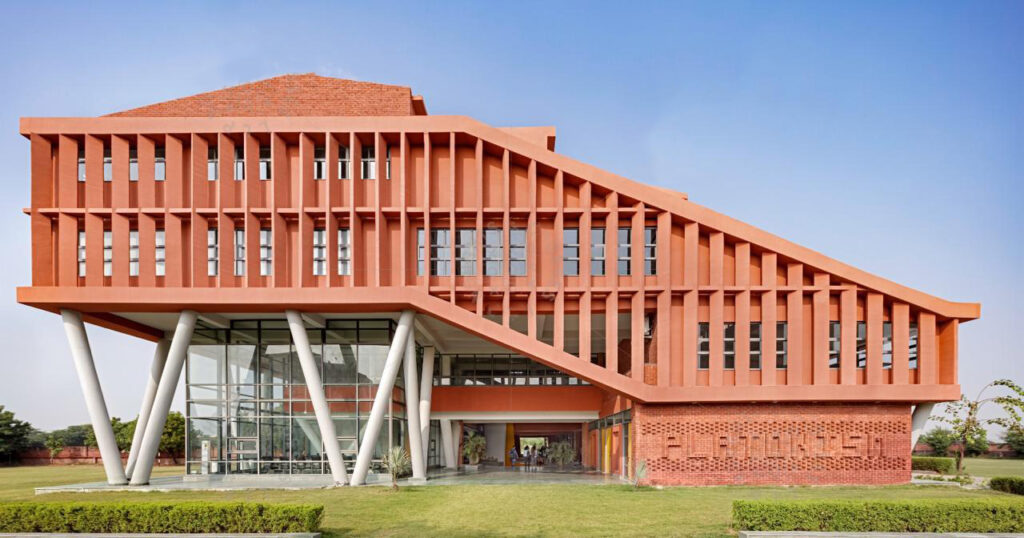
After completing a Diploma in Pharmacy (D. Pharma), there are several higher studies options available:
Bachelor of Pharmacy (B. Pharma)
- Duration: 3 years (Lateral Entry)
- Overview: This is a popular choice where you can enter the second year of the B. Pharma program. It provides a more in-depth understanding of pharmaceuticals and prepares you for roles in the drug industry, research, and clinical practices.
Pharm D (Doctor of Pharmacy)
- Duration: 6 years (Including internship)
- Overview: This course combines clinical pharmacy and pharmacy sciences. It prepares students for advanced roles in patient care, hospital pharmacy, and clinical research.
Bachelor of Science (B.Sc) in Clinical Research
- Duration: 3 years
- Overview: Focuses on clinical research, drug development, and trials. It’s a good choice if you’re interested in research and development in the pharmaceutical industry.
Bachelor of Business Administration (BBA) in Healthcare Management
- Duration: 3 years
- Overview: If you’re interested in the management side of the healthcare industry, this course provides knowledge in healthcare administration, hospital management, and healthcare marketing.
Bachelor of Science (B.Sc) in Pharmaceutical Chemistry
- Duration: 3 years
- Overview: This program focuses on the chemical aspect of drug development, quality control, and pharmaceutical manufacturing.
Bachelor of Science (B.Sc) in Biotechnology
- Duration: 3 years
- Overview: Covers biotechnology and its applications in medicine, agriculture, and the pharmaceutical industry, providing a broader scope in life sciences.
Higher Education Abroad
- Overview: You can pursue advanced degrees like B. Pharm or Pharm D from institutions abroad, which may offer specialized courses and better career opportunities.
Diploma in Drug Store Management
- Duration: 1 year
- Overview: Focuses on managing a pharmacy or drug store, including inventory management, customer service, and regulatory compliance.
Career Opportunities After D Pharma
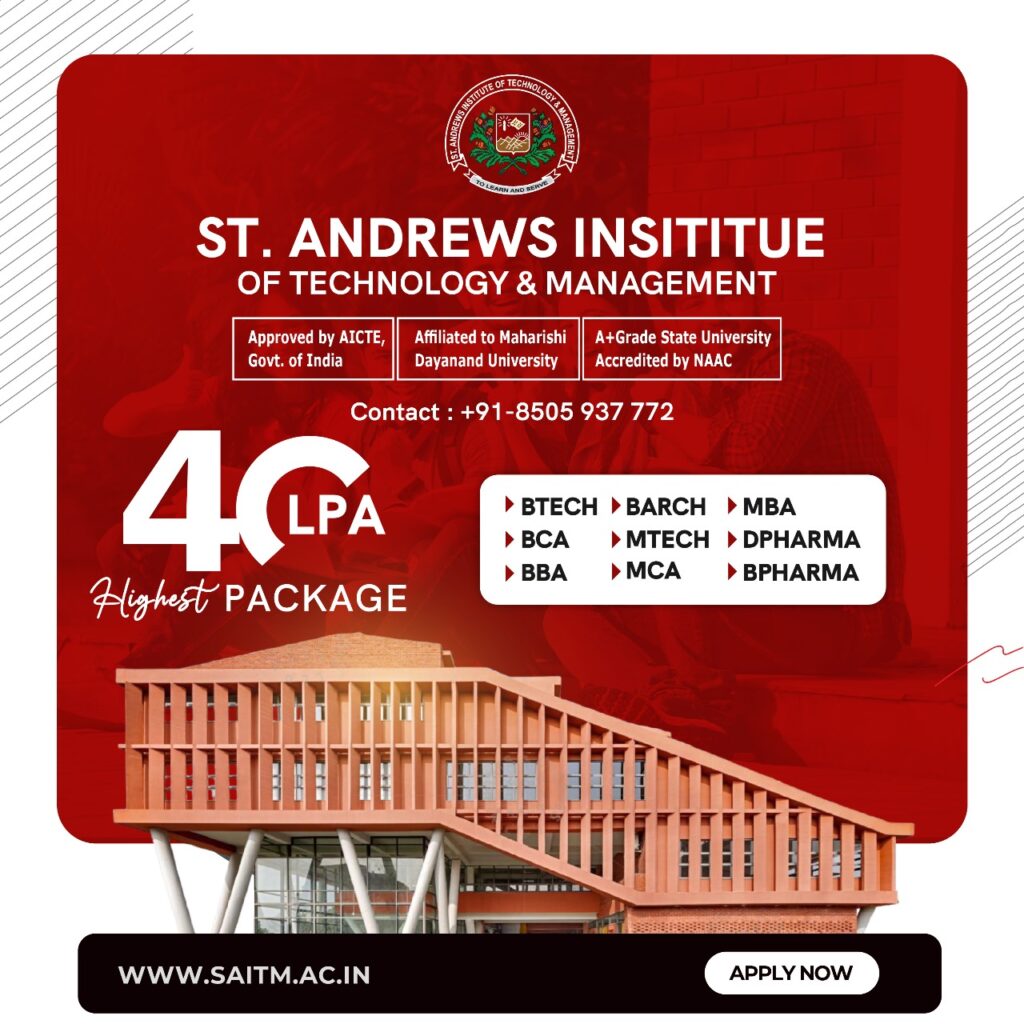
Below are some of the prominent career paths available after D. Pharma:
Pharmacist
Role: Pharmacists are responsible for dispensing medications prescribed by doctors, providing patient counseling on drug usage, dosage, side effects, and ensuring the safe and effective use of pharmaceutical products. rewrite and must include pharmacy professionals
Workplaces: Retail pharmacies, hospital pharmacies, and community health centers.
Career Progression: With experience, pharmacists can advance to roles such as pharmacy manager or supervisor, or even start their own pharmacy.
Pharmaceutical Sales Representative
Role: Pharmaceutical sales representatives, also known as medical representatives, promote and sell pharmaceutical products to healthcare providers such as doctors, clinics, and hospitals. With a D Pharma Duration of two years, graduates can pursue this role, playing a crucial part in building relationships between pharmaceutical companies and healthcare professionals.
Workplaces: Pharmaceutical companies, healthcare product distributors.
Career Progression: Successful sales representatives can advance to senior sales roles, product management, or regional sales management positions.
Pharmacy Technician
Role: Pharmacy technicians assist pharmacists in preparing and dispensing medications, managing inventory, and performing administrative tasks. They play a supportive role in ensuring the smooth operation of a pharmacy.
Workplaces: Retail pharmacies, hospital pharmacies, long-term care facilities.
Career Progression: Pharmacy technicians can specialize in areas like compounding, sterile preparations, or transition into supervisory roles within the pharmacy.
Pharmacy Business Owner
Role: Graduates with entrepreneurial skills can open their own pharmacy or drugstore. As business owners, they manage all aspects of the pharmacy, including inventory, staff, finances, and customer relations.
Workplaces: Independent pharmacies, chain pharmacies.
Career Progression: With success, owners can expand their business by opening additional locations or diversifying into related services, such as healthcare clinics or wellness centers.
Quality Control/Quality Assurance Associate
Role: In pharmaceutical manufacturing, quality control (QC) and quality assurance (QA) associates ensure that products meet regulatory standards for safety, efficacy, and quality. They conduct tests, monitor production processes, and document compliance.
Workplaces: Pharmaceutical manufacturing companies, contract research organizations (CROs).
Career Progression: QC/QA professionals can advance to senior roles, including QA manager or regulatory affairs specialist, and may even transition into research and development (R&D) roles.
Hospital Pharmacy Technician
Role: In hospitals, pharmacy technicians work closely with pharmacists and other healthcare professionals to prepare and distribute medications to patients. They may also be involved in medication reconciliation and compounding sterile preparations.
Workplaces: Hospitals, healthcare facilities, long-term care centers.
Career Progression: Hospital pharmacy technicians can advance to roles such as lead technician or pharmacy coordinator, and may also pursue further education to become licensed pharmacists.
Clinical Research Assistant
Role: Clinical research assistants support the conduct of clinical trials by managing data, assisting in protocol development, ensuring regulatory compliance, and coordinating with study participants.
Workplaces: Clinical research organizations (CROs), hospitals, academic research institutions.
Career Progression: With experience and additional training, clinical research assistants can progress to roles such as clinical research coordinator, clinical data manager, or clinical trial manager.
Medical Representative
Role: Medical representatives are responsible for promoting pharmaceutical products to doctors and healthcare institutions. They educate healthcare professionals about new drugs, their benefits, and proper usage, while also collecting feedback from the market.
Workplaces: Pharmaceutical companies, healthcare product suppliers.
Career Progression: Medical representatives can advance to roles such as area sales manager, regional sales manager, or product manager within a pharmaceutical company.
Health Inspector
Role: Health inspectors monitor and enforce health regulations in various settings, including food establishments, hospitals, and community health centers. They ensure compliance with health standards and work to prevent the spread of disease.
Workplaces: Government health departments, municipal corporations, regulatory bodies.
Career Progression: Health inspectors can advance to senior inspection roles, become health officers, or move into public health management.
Drug Inspector
Role: Drug inspectors are responsible for ensuring that pharmaceutical products are manufactured, distributed, and sold in compliance with regulatory standards. They conduct inspections, collect samples, and take legal action against violations.
Workplaces: Government regulatory agencies, pharmaceutical companies.
Career Progression: With experience, drug inspectors can advance to senior regulatory positions or move into policy-making roles within health departments.
Further Education
B. Pharm (Bachelor of Pharmacy): Graduates of D. Pharma can pursue a B. Pharm degree to deepen their knowledge and open up more advanced career opportunities in pharmaceutical sciences, research, and industry.
Pharm D (Doctor of Pharmacy): Pursuing a Pharm D allows students to become clinical pharmacists, with the ability to practice at a more advanced level, including direct patient care and medication therapy management.
M. Pharm (Master of Pharmacy): Specializing in fields such as pharmacology, pharmaceutics, or pharmaceutical chemistry can lead to careers in research, teaching, or higher management roles in the pharmaceutical industry.
Regulatory Affairs Executive
Role: Regulatory affairs executives ensure that pharmaceutical products meet all legal and regulatory requirements before they are marketed. They prepare documentation, liaise with regulatory bodies, and manage the approval process for new drugs.
Workplaces: Pharmaceutical companies, regulatory consulting firms.
Career Progression: With experience, regulatory affairs professionals can advance to senior roles, such as regulatory affairs manager or director, overseeing entire portfolios of products.
Teaching and Academia
Role: D. Pharma graduates with a passion for education can pursue careers in teaching at pharmacy colleges or training institutes. They can teach subjects related to pharmacy practice, pharmaceutical chemistry, or pharmacology.
Workplaces: Pharmacy colleges, vocational training centers, healthcare institutions.
Career Progression: With further education, such as a B. Pharm or M. Pharm, individuals can advance to higher academic positions, including lecturer, professor, or academic dean.
Community Health Worker
Role: Community health workers engage with communities to promote health, educate the public on disease prevention, and ensure access to healthcare services. They may work in collaboration with healthcare providers and public health agencies.
Workplaces: Non-governmental organizations (NGOs), public health departments, community health centers.
Career Progression: Experienced community health workers can move into roles such as community health manager, program coordinator, or public health consultant.
Entrepreneurship in Pharmaceutical Sector
Role: Graduates with entrepreneurial aspirations can explore various business opportunities in the pharmaceutical sector, such as starting a pharmaceutical distribution company, manufacturing unit, or a chain of retail pharmacies.
Workplaces: Independent businesses, startup ventures.
Career Progression: Successful entrepreneurs can scale their businesses, expand into new markets, or diversify into related industries like medical supplies or healthcare services.
Top Companies Hiring D Pharma Graduates

Here are some of the top companies that hire D. Pharma graduates in India:
Apollo Pharmacy
- Overview: As one of the largest pharmacy chains in India, Apollo Pharmacy offers extensive opportunities for D. Pharma graduates to work as community pharmacists, store managers, and more.
Cipla
- Overview: Cipla is a leading pharmaceutical company known for its wide range of healthcare products. D. Pharma graduates can find roles in sales, quality control, and production.
Sun Pharmaceuticals
- Overview: Sun Pharma is one of the largest pharmaceutical companies in India, offering opportunities in manufacturing, quality assurance, regulatory affairs, and sales.
Dr. Reddy’s Laboratories
- Overview: A major player in the pharmaceutical industry, Dr. Reddy’s Laboratories hires D. Pharma graduates for various positions in production, quality control, and sales.
Fortis Healthcare
- Overview: Fortis is a leading hospital chain in India, offering D. Pharma graduates roles in hospital pharmacy, patient counseling, and medication management.
Hetero Drugs
- Overview: Hetero is a prominent pharmaceutical company that hires D. Pharma graduates for roles in production, quality control, and sales.
Lupin Pharmaceuticals
- Overview: Lupin is a global pharmaceutical company that offers career opportunities in manufacturing, regulatory affairs, quality control, and sales for D. Pharma graduates.
Piramal Enterprises
- Overview: Piramal offers diverse roles in pharmaceuticals and healthcare, including positions in quality control, manufacturing, and sales for D. Pharma graduates.
MedPlus
- Overview: MedPlus is another leading retail pharmacy chain that hires D. Pharma graduates for positions in store management, customer service, and pharmacy operations.
Glenmark Pharmaceuticals
- Overview: Glenmark is a research-driven pharmaceutical company that provides opportunities in production, quality assurance, and sales for D. Pharma graduates.
Aurobindo Pharma
- Overview: Aurobindo Pharma is a global pharmaceutical company with opportunities in manufacturing, quality control, and regulatory affairs for D. Pharma graduates.
Max Healthcare
- Overview: Max Healthcare is a prominent healthcare provider in India, offering roles in hospital pharmacy, patient care, and medication management for D. Pharma graduates.
Zydus Cadila
- Overview: Zydus Cadila is a leading pharmaceutical company that offers roles in manufacturing, quality assurance, and sales for D. Pharma graduates.
Biocon
- Overview: Biocon is a leading biopharmaceutical company in India, providing opportunities in production, quality control, and regulatory affairs for D. Pharma graduates.
GSK Pharmaceuticals
- Overview: GlaxoSmithKline (GSK) is a global healthcare company that hires D. Pharma graduates for roles in manufacturing, quality control, and sales.
Cadila Pharmaceuticals
- Overview: Cadila Pharmaceuticals is one of the largest privately held pharmaceutical companies in India, offering career opportunities in manufacturing, quality assurance, and regulatory affairs.
Wockhardt
- Overview: Wockhardt is a global pharmaceutical and biotechnology company that offers roles in production, quality control, and sales for D. Pharma graduates.
Ranbaxy Laboratories
- Overview: Ranbaxy, now part of Sun Pharmaceuticals, offers career opportunities in production, quality assurance, and sales for D. Pharma graduates.
Reliance Life Sciences
- Overview: Reliance Life Sciences is part of the Reliance Group and offers roles in biotechnology, pharmaceuticals, and clinical research for D. Pharma graduates.
Nestlé Health Science
- Overview: Nestlé Health Science offers opportunities in the nutritional science and healthcare sectors, including roles in sales and product management for D. Pharma graduates.
Job Profiles After D. Pharma in the Pharmaceutical Industry

Graduates can explore roles such as:
Community Pharmacist
- Role: Dispense medications, provide patient counseling, and manage the daily operations of a pharmacy.
- Skills Needed: Strong communication, customer service, and medication knowledge.
Hospital Pharmacist
- Role: Prepare and dispense medications in hospitals, work closely with healthcare teams, and ensure optimal medication management for patients.
- Skills Needed: Clinical knowledge, teamwork, and attention to detail.
Pharmaceutical Sales Representative
- Role: Promote and sell pharmaceutical products to healthcare professionals, manage client relationships, and provide product information.
- Skills Needed: Sales skills, product knowledge, and persuasive communication.
Quality Control Analyst
- Role: Perform testing and analysis of pharmaceutical products to ensure they meet quality and safety standards.
- Skills Needed: Analytical skills, attention to detail, and knowledge of quality control procedures.
Production Supervisor
- Role: Oversee the manufacturing process of pharmaceutical products, ensure compliance with regulatory standards, and manage production staff.
- Skills Needed: Leadership, problem-solving, and understanding of manufacturing processes.
Regulatory Affairs Executive
- Role: Ensure pharmaceutical products comply with government regulations, prepare and submit regulatory documents, and manage interactions with regulatory bodies.
- Skills Needed: Regulatory knowledge, attention to detail, and organizational skills.
Clinical Research Associate
- Role: Monitor and manage clinical trials, ensure adherence to research protocols, and collect and analyze clinical data.
- Skills Needed: Research skills, analytical thinking, and knowledge of clinical trial processes.
Pharmacy Technician
- Role: Assist pharmacists in dispensing medications, managing inventory, and providing patient support.
- Skills Needed: Organizational skills, accuracy, and basic pharmaceutical knowledge.
Pharmaceutical Marketing Executive
- Role: Develop and execute marketing strategies for pharmaceutical products, conduct market research, and manage promotional activities.
- Skills Needed: Marketing skills, strategic thinking, and understanding of pharmaceutical markets.
Drug Safety Associate
- Role: Monitor and report on the safety and efficacy of pharmaceutical products, manage adverse event reports, and ensure compliance with safety regulations.
- Skills Needed: Knowledge of drug safety regulations, analytical skills, and attention to detail.
Required Skillset for D Pharma

Here are some essential skills:
Pharmaceutical Knowledge
- Understanding of Drugs: In-depth knowledge of various drugs, their compositions, therapeutic uses, side effects, and interactions.
- Pharmacology: Understanding how drugs affect the human body, including their mechanisms of action.
Dispensing and Compounding Skills
- Prescription Reading: Ability to accurately read and interpret prescriptions.
- Medication Dispensing: Skills in measuring, labeling, and providing correct dosages of medications.
- Compounding: Knowledge of mixing ingredients to prepare custom medications when required.
Communication Skills
- Patient Interaction: Effective communication with patients to explain medication usage, dosage, and potential side effects.
- Interpersonal Skills: Building rapport with patients, doctors, and other healthcare professionals.
Attention to Detail
- Accuracy: Precision in measuring doses and checking prescriptions to avoid errors.
- Record Keeping: Maintaining accurate patient records, medication logs, and inventory management.
Technical Skills
- Computer Literacy: Familiarity with pharmacy management software, electronic health records (EHR), and inventory management systems.
- Basic Laboratory Techniques: Skills in handling pharmaceutical instruments and performing basic lab procedures.
Regulatory Knowledge
- Understanding Regulations: Knowledge of drug laws, pharmacy ethics, and regulatory guidelines (such as FDA, GMP standards).
- Compliance: Ensuring that all practices are in line with legal and ethical standards.
Customer Service Skills
- Empathy and Patience: Ability to deal with customers’ concerns, answer their questions, and provide support.
- Problem-Solving: Addressing issues related to prescriptions, drug availability, or insurance matters.
Analytical Skills
- Problem Identification: Identifying potential drug interactions, contraindications, or errors in prescriptions.
- Decision Making: Making informed decisions regarding drug dispensing and patient care.
Teamwork and Collaboration
- Working with Healthcare Teams: Collaborating with doctors, nurses, and other healthcare providers to ensure patient safety and effective treatment.
- Multitasking: Managing multiple tasks efficiently, such as dispensing medications while advising patients.
Continuous Learning
- Staying Updated: Keeping up with the latest advancements in pharmaceuticals, new drugs, and changes in healthcare regulations.
- Professional Development: Engaging in ongoing education and training to enhance skills and knowledge.
FAQs
Which is better, B Pharm or D Pharm?
Choosing between B. Pharm (Bachelor of Pharmacy) and D. Pharm (Diploma in Pharmacy) depends on your career goals.
B. Pharm is a four-year degree that provides in-depth knowledge of pharmaceutical sciences, preparing you for roles in research, development, and higher positions in the pharmaceutical industry. In contrast, the D Pharma Duration is two years, offering foundational knowledge for entry-level roles in pharmacy.
D. Pharm is a two-year diploma focused on the basics, suitable for those looking to start a career quickly as a pharmacist or in retail pharmacy.
Can I do D Pharma after 12th?
Yes, you can pursue a D. Pharma (Diploma in Pharmacy) after completing 12th grade. To be eligible, you typically need to have completed your 10+2 education with a focus on subjects like Physics, Chemistry, and Biology or Mathematics from a recognized board.
The D. Pharma course is a two-year program, with a D Pharma Duration of two years, designed to provide foundational knowledge in pharmacy sciences. It prepares you for various roles in pharmacy, healthcare, and the pharmaceutical industry, setting the stage for a successful pharmacy career.
It’s an ideal choice if you want to quickly start your pharmacy career or plan to pursue further education in pharmacy or related fields in the future.
Is D Pharma equal to doctor?
No, a D. Pharma (Diploma in Pharmacy) is not equivalent to being a doctor. With a D Pharma Duration of two years, this qualification allows you to work as a pharmacist, which involves dispensing medications, providing patient counseling, and managing drug inventories.
Pharmaceutical science is a technical and specialized field within healthcare. Unlike becoming a doctor, which requires a medical degree (such as MBBS, MD, or an equivalent), extensive clinical training, and certification to diagnose and treat medical conditions, a career in pharmaceutical science involves a different set of responsibilities.
Pharma degrees are vital to the healthcare system, offering crucial expertise in pharmaceutical science. However, even with a D Pharma Duration of two years, they do not confer the same qualifications or responsibilities as medical doctors.
Is D Pharmacy hard to study?
The difficulty of studying D. Pharmacy course can vary depending on your background and interest in the subject.
The course covers various topics such as pharmacology, pharmaceutics, pharmaceutical chemistry, and human anatomy. With a D Pharma Duration of two years, meeting the Diploma in Pharmacy Eligibility is essential, as these subjects can be challenging if you’re not familiar with them.
The curriculum includes both theoretical and practical components, requiring a solid understanding of complex concepts and hands-on skills. However, with dedication, regular study, and effective time management, students can successfully navigate the program.
If you have a strong interest in pharmacy and healthcare, you may find the study both rewarding and engaging. Meeting the Diploma in Pharmacy Eligibility is the first step, followed by completing the D Pharma Duration of two years. Adherence to the guidelines set by the Pharmacy Council is crucial for maintaining high educational standards and ensuring a successful career in the field.
What is the D Pharma Duration?
The D Pharma course typically spans two years, divided into four semesters.




